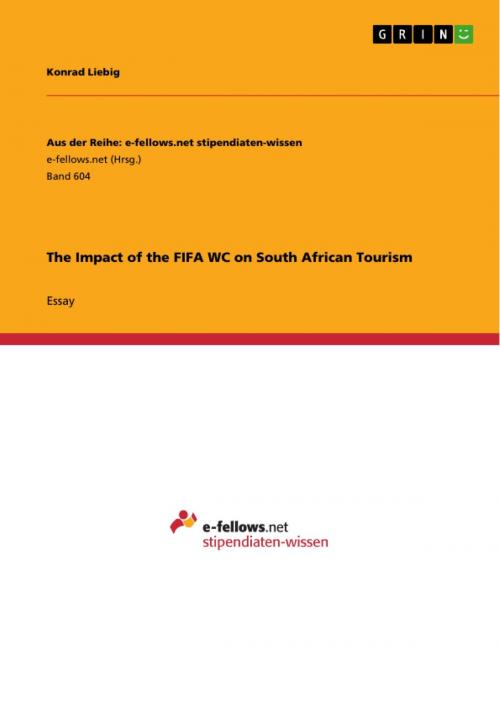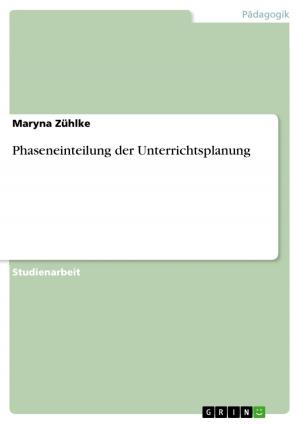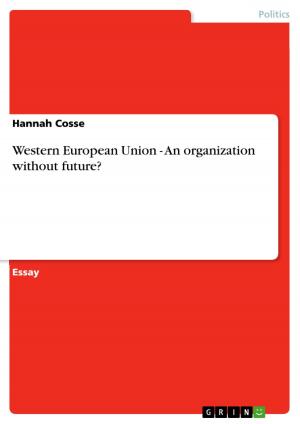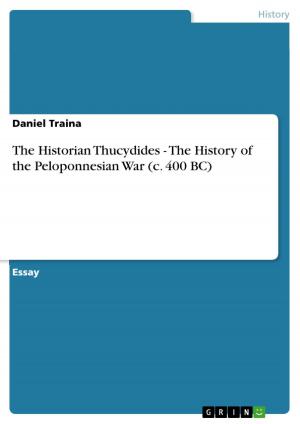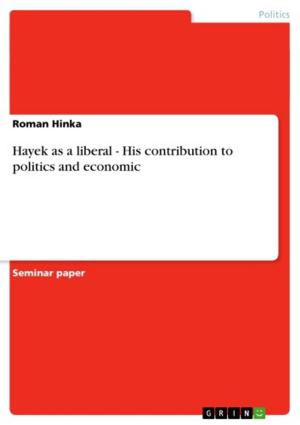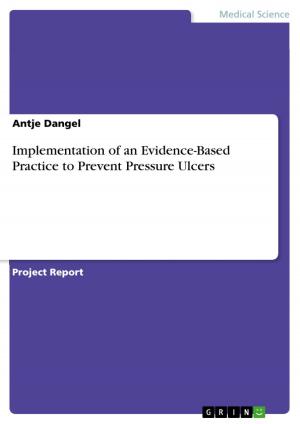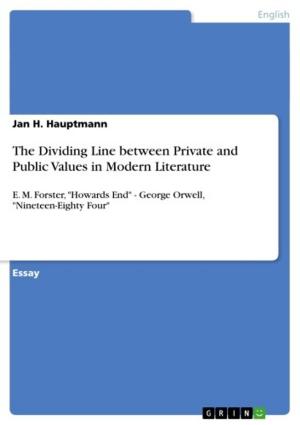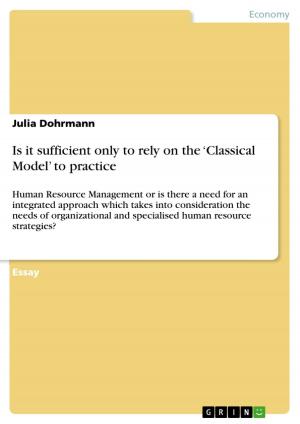| Author: | Konrad Liebig | ISBN: | 9783656334774 |
| Publisher: | GRIN Publishing | Publication: | December 14, 2012 |
| Imprint: | GRIN Publishing | Language: | English |
| Author: | Konrad Liebig |
| ISBN: | 9783656334774 |
| Publisher: | GRIN Publishing |
| Publication: | December 14, 2012 |
| Imprint: | GRIN Publishing |
| Language: | English |
Essay from the year 2011 in the subject Sport - Sport Economics, Sport Management, grade: 70/100, Stellenbosch Universitiy (Economics), course: International Trade , language: English, abstract: The FIFA World Cup (WC) is one of the biggest sports events worldwide and the right to host one of them is a highly sought-after. The reasons for that are not only the excitement of the event and the media exposure of the host nation but also the promise of lasting effects on the country´s economy. So, host nations and cities are expecting net gains from events like the FIFA WC (Bohlmann 2006). One important type of these possible effects is the attraction of tourists to the country (Allmers/Maennig 2009). This is especially the case for South Africa whose tourism industry is growing to a cornerstone of the SA economy and to one of the largest employers of the country (Rogerson 2009). Prior to the WC numerous predictions about the actual effects on the economy and the tourism in special were developed (Allmers/Maennig 2009, Bohrmann 2006). Next to the direct effects respectively the tourists arriving during the world cup some studies also predict a legacy effect of the WC which increases the tourist arrivals afterwards (Fourie/Santana-Gallego 2010). Hence, this essay will analyze the actual effects of the FIFA WC 2010 on the South African tourism industry compared to the predictions during the event and afterwards. The essay first outlines the importance of the tourism industry for the South African economy. Afterwards it takes a look at the research about the impacts of previous world cups and sports mega events in general before the direct effects of the world cup are examined and compared to the predictions. It is revealed that none of the partially very optimistic predictions could be reached. An analysis of the indirect or legacy effects of the world cup follows. Even if it is too early to measure long run effects it is shown that a strong effect on overseas tourism can be expected.
Essay from the year 2011 in the subject Sport - Sport Economics, Sport Management, grade: 70/100, Stellenbosch Universitiy (Economics), course: International Trade , language: English, abstract: The FIFA World Cup (WC) is one of the biggest sports events worldwide and the right to host one of them is a highly sought-after. The reasons for that are not only the excitement of the event and the media exposure of the host nation but also the promise of lasting effects on the country´s economy. So, host nations and cities are expecting net gains from events like the FIFA WC (Bohlmann 2006). One important type of these possible effects is the attraction of tourists to the country (Allmers/Maennig 2009). This is especially the case for South Africa whose tourism industry is growing to a cornerstone of the SA economy and to one of the largest employers of the country (Rogerson 2009). Prior to the WC numerous predictions about the actual effects on the economy and the tourism in special were developed (Allmers/Maennig 2009, Bohrmann 2006). Next to the direct effects respectively the tourists arriving during the world cup some studies also predict a legacy effect of the WC which increases the tourist arrivals afterwards (Fourie/Santana-Gallego 2010). Hence, this essay will analyze the actual effects of the FIFA WC 2010 on the South African tourism industry compared to the predictions during the event and afterwards. The essay first outlines the importance of the tourism industry for the South African economy. Afterwards it takes a look at the research about the impacts of previous world cups and sports mega events in general before the direct effects of the world cup are examined and compared to the predictions. It is revealed that none of the partially very optimistic predictions could be reached. An analysis of the indirect or legacy effects of the world cup follows. Even if it is too early to measure long run effects it is shown that a strong effect on overseas tourism can be expected.
